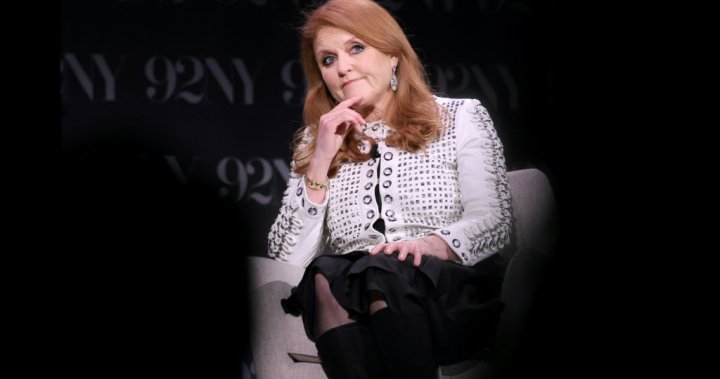Sarah “Fergie” Ferguson, The Duchess of York, has been diagnosed with breast cancer and has undergone mastectomy surgery.
She shared her diagnosis in a prerecorded episode of her new podcast Tea Talks with the Duchess and Sarah. The podcast was taped the day before her single mastectomy.
“I want every single person that is listening to this podcast to go and get checked,” she said on the episode, which was released over the weekend.
“I’m taking this as a real gift to me to change my life, to nurture myself,” said added, saying it was time to start “taking myself seriously” and “stop trying to fix everyone else.”
“Now is my chance,” she said. “This extraordinary position I’m in right now — it means there’s no choice.
Ferguson, 63, who was previously married to Prince Andrew, said she received the diagnosis following a routine mammogram screening.
“I can’t make another excuse. I have to go through this operation and I have to be well and strong. And therefore no choice is the best choice,” she told listeners.
The Duchess’ rep, Lauren Auslander, told USA Today the “prognosis is good” and she is “symptom-free” while she recuperates from surgery at home with her family.
“The Duchess wants to express her immense gratitude to all the medical staff who have supported her in recent days,” Auslander said in a statement.
Princess Beatrice, Sarah Ferguson, Duchess of York and Princess Eugenie attend the launch of The Ned, London on April 26, 2017, in London, England.
Getty Images
“She is also hugely thankful to the staff involved in the mammogram which identified her illness, which was otherwise symptom-free, and believes her experience underlines the importance of regular screening,” added the rep.
In the podcast, Ferguson shared that it was at her sister’s urging that she went for a mammogram.
“It was after the bank holiday, and I live in this area — in the Windsor area — and it was a hot day and I didn’t feel like going to London. It’s easy to put it off — ‘I’ll do it next week,’” Ferguson said. “My sister, who’s wonderful from Australia, I always normally do what she says because she gets so cranky. She said, ‘No — go. I need you to go. I need you to go.’”
She said the cancer appeared as “only a shadow” on her screening, but that she wouldn’t have been able to detect it without the mammogram.
“They wouldn’t have found out that it needs to be immediately sorted.”
Ferguson, whose stepfather died of prostate cancer at the age of 50, has long been an advocate for cancer research and has brought her two daughters, Beatrice and Eugenie, into the world of cancer advocacy.
Last year, the trio virtually met with young cancer patients and health-care workers for the opening of the hematology ward at University College London Hospitals NHS Foundation Trust.
“This is a special charity that’s so very close to my heart. Cancer doesn’t just devastate a young person’s health, it threatens to take away everything they care about – their identity, their independence, and their dreams,” she said in a statement to the organization at the time. “Teenage Cancer Trust’s specialist nurses and youth workers provide the very best care and support during treatment and beyond, making sure that cancer doesn’t stop young people (from) living their lives.”
“I opened the first Teenage Cancer Trust unit for young people in London in 1990, and 32 years later, to be here with my daughters, helping to open this new blood cancer ward at UCLH, is truly remarkable,” she added.
It is unclear whether Ferguson will face more treatment following her surgery. Some early-stage breast cancers require nothing more than surgery, but others are treated with various combinations of chemotherapy, radiation, targeted therapies and hormone therapies.
© 2023 Global News, a division of Corus Entertainment Inc.
For all the latest Health News Click Here
For the latest news and updates, follow us on Google News.

